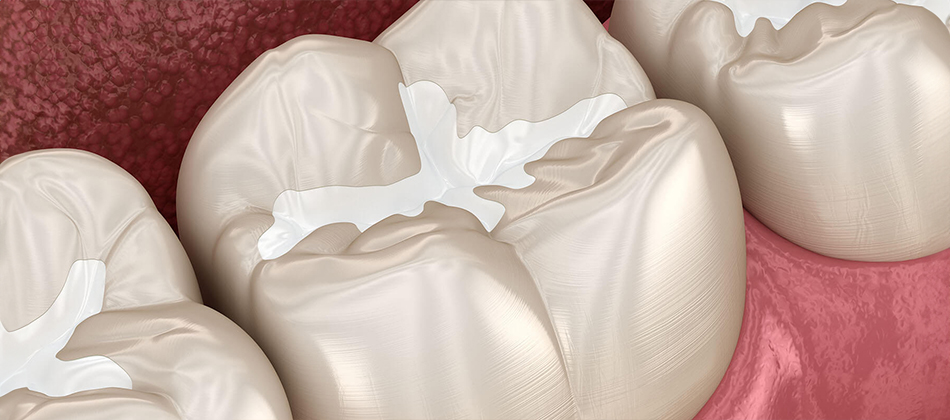Fissure Sealants
An aesthetic smile is the expression of power;
the smile is the sharp sword of this power.

Fissures< span class="NormalTextRun SCXW127856701 BCX0"> refers to naturally occurring deep cracks on the chewing surface of the teeth. These cracks can allow food and bacteria to seep into the tooth enamel, leading to tooth decay. In particular, these fissures, which are difficult to brush and floss, can be closed by dentists with fissure covering materials. This makes teeth easier to clean and helps prevent tooth decay. :160,"335559740":259}”>
By closing the deep cracks on the chewing surface of the teeth, teeth It helps prevent decay. This material is usually plastic-based and is placed into the fissures of the tooth. Fissure sealant prevents food and bacteria from leaking into the tooth by creating a smooth layer on the surface of the tooth enamel, thus preventing tooth decay. It helps. This procedure is usually performed quickly and painlessly and preserves the natural structure of the tooth. Fissure sealant is an effective method for preventing tooth decay, especially in children.< span class="EOP SCXW229303152 BCX0" data-ccp-props="{"201341983":0,"335559739":160,"335559740":259}">
Fissure sealants can remain in the mouth for many years after being applied by dentists. The lifespan of fissure sealant materials may vary depending on the quality of the material and the person’s dental hygiene. Generally, fissure sealants can last between 5-10 years. /span>
However, during this process, wear, abrasion or cracking may occur on the fissure sealant material. In this case, your dentist should examine you to check the fissure sealant. Your dentist may perform reapplication or repair depending on the condition of the fissure sealant material. }”>
However, the permanence of fissure sealants also depends on the person’s dental hygiene. Regular tooth brushing, flossing and dentist check-ups can extend the life of fissure sealants. Additionally, a healthy diet and regular dental check-ups are also important to prevent tooth decay. 259}”>
